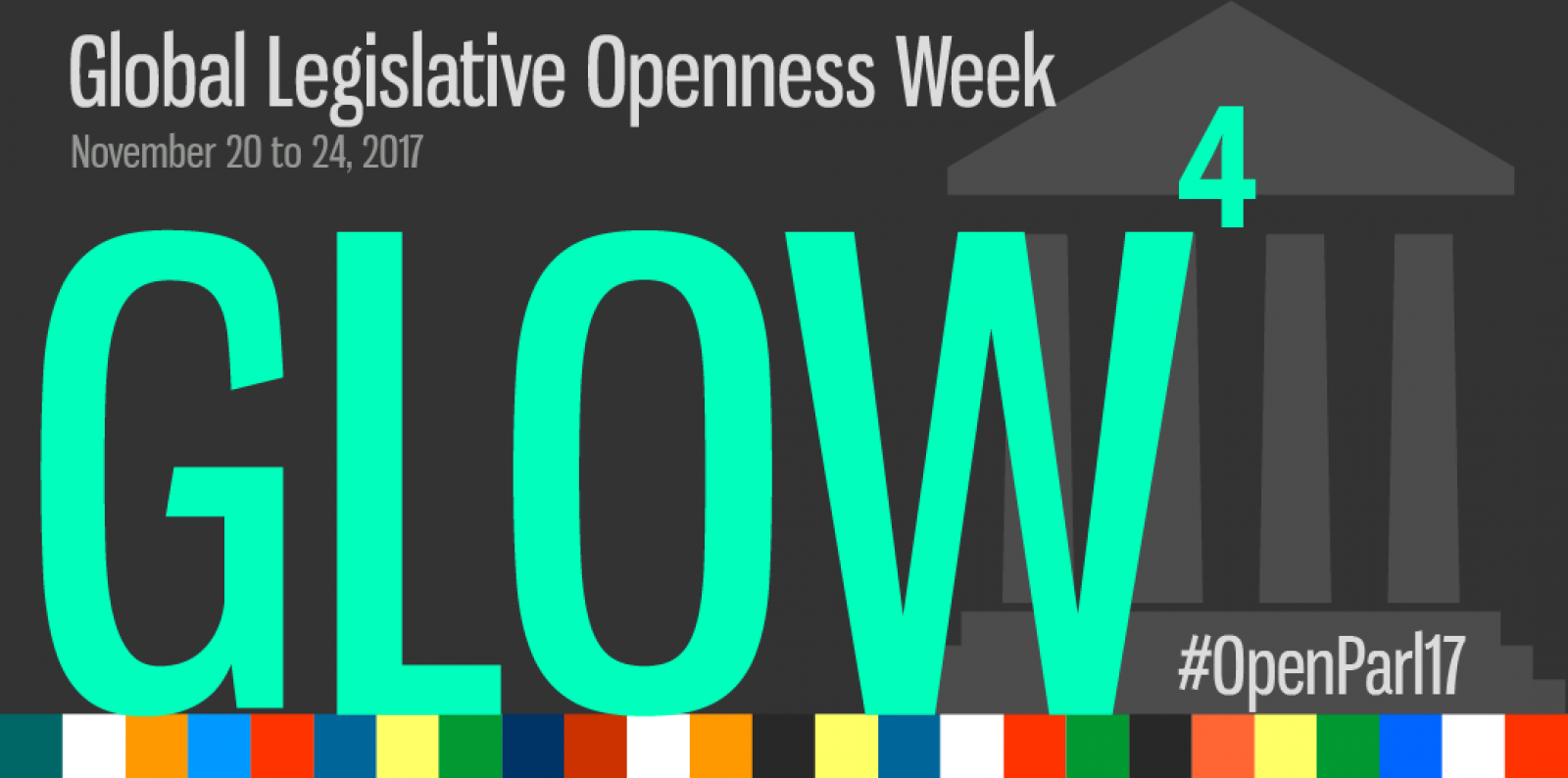
SHARE
ISSUES
The fourth annual Global Legislative Openness Week once again demonstrated the breadth and diversity of the global movement for open, responsive legislatures. With more than 30 events in 20 countries, this year’s events showed the opportunities that exist globally to strengthen parliamentary transparency and innovation. Civil society organizations and parliamentarians around the world used a variety of approaches to take advantage of opportunities for democratic reform, from hackathons and online tool launches, to policy meetings and parliamentary floor speeches, to public events and advocacy activities.
This year’s GLOW was anchored around Open Government Partnership’s (OGP) Americas Regional Meeting in Buenos Aires, Argentina, which brought together international organizations, civil society organizations and representatives of the private sector from 18 participating countries. With over 60 sessions, this regional meeting provided an opportunity for peer exchange within the Americas to discuss topics of parliamentary openness, civic technologies and open data, and anti-corruption ideas. As a complement to the OGP Regional Meeting, the House Democracy Partnership (HDP) engaged members of parliament (MPs) from the legislatures of Colombia, Guatemala, Haiti and Peru in a set of meetings and discussions on parliamentary openness. Held in collaboration with ParlAmericas, this program focused on opening legislative data, building platforms for citizen engagement and strengthening accountability.
Global Legislative Openness Week provides a snapshot of the types of activities that are happening around the world every day to strengthen the accountability, responsiveness and openness of legislatures.
Highlighting Issues of Inclusion and Representation
During GLOW, the Latin American Network for Legislative Transparency released the results of a large study that analyzes public perception of legislatures in Latin America. In survey responses from 11,000 citizens in the region, the Network found that a vast majority of citizens in surveyed countries believe that their legislature does not sufficiently represent the diversity of the population. Perceptions that legislatures represent only certain segments of society can erode the democratic legitimacy of parliamentary institutions. Member organizations of the Latin American Network for Legislative Transparency are working with congresses in the region to try to strengthen the representativeness of their institutions.
In Georgia, the Institute for the Development of Freedom of Information and the Parliament of Georgia’s Permanent Council on Open and Transparent Governance hosted an event focused on access to parliament and parliamentary services for the differently abled. At the event, a group of advocates from the disabilities community presented a concept note to the Speaker and members of the Permanent Council that made suggestions as to how the parliament could make its services more broadly accessible.
Cooperation across borders
One of the most exciting features of the open parliament and open government movements is that they allow civil society organizations to support fellow organizations in other countries. GLOW provided yet another opportunity to share information across borders, particularly as it relates to technology and access to data. As parliaments release more data in open formats, and as parliaments increasingly utilize international technical standards for structuring this data (such as Akoma Ntoso), tools for visualizing and sharing data that is easily exported internationally.
In Albania, Bosnian PMO Zasto Ne, in collaboration with Albanian organization Lex Ferenda, launched a new platform (pictured above) that connects citizens to policy makers was launched during GLOW. The platform was based on a Bosnian site whose success in Bosnia -- 250,000 unique visitors per year -- encouraged Zasto Ne to seek other countries in which to deploy the site. By sharing their code and experiences with the Albanian organization, Zasto Ne is increasing the likelihood that the tool will ultimately increase citizens’ access to information and political engagement. They will also significantly limit the time and overhead costs required to develop such a tool from scratch. In addition, the Sinar Project in Malaysia developed improvements to their parliamentary monitoring platform, which a partner organization in Myanmar later used for its own purposes.
This year, as part of their EveryPolitician project, mySociety celebrated Global Legislative Openness Week by helping to organize a series of workshops dedicated to collecting standardized information on politicians around the world. Locally organized workshops took place in nine countries, and all the compiled data will be publicly available as open data on the EveryPolitician website. Like the examples above, mySociety and their partners demonstrated their dedication to the creation of open source data and technology resources that support the activities of actors around the world -- a type of “democratic commons”, according to mySociety.
Open Parliament Commitments and the Open Government Partnership
As in previous years, many of this year’s GLOW events and activities focused on the legislature's role in the Open Government Partnership (OGP). In Argentina, Georgia, Ghana, Kenya, Paraguay, Ukraine and elsewhere, civil society organizations, MPs and legislative staff explored greater legislative engagement in OGP. Civil society organizations in many countries pushed their legislatures to develop official commitments under OGP’s parliamentary engagement policy. In Chile, the Congress released their second open parliament action plan, which they developed in close consultation with civil society and will add to Chile’s National Action Plan.
The OGP Legislative Openness Working Group also launched a new resource to support civil society groups and parliaments that want to develop open parliament commitments of their own. The Toolkit for Advancing Legislative Openness is now available in English, French and Spanish, and includes an analysis of parliamentary commitments, discussion of mechanisms for civil society collaboration with parliament and other useful information.
The organizers of Global Legislative Openness Week -- the OGP Legislative Openness Working Group and members of the OpeningParliament.org community -- thank everyone who helped make GLOW a success once again this year. NDI would also like to thank the Ford Foundation, without whose support much of this would not have been possible. We look forward to carrying the success of GLOW forward into 2018.




